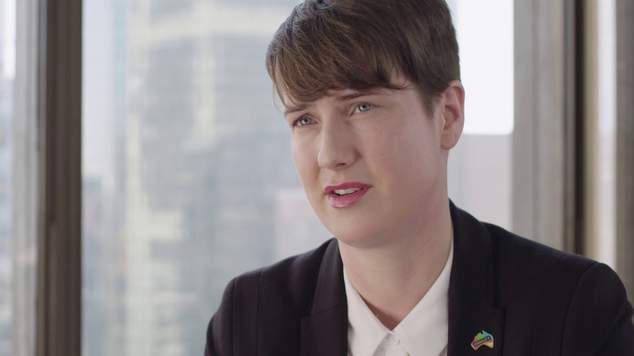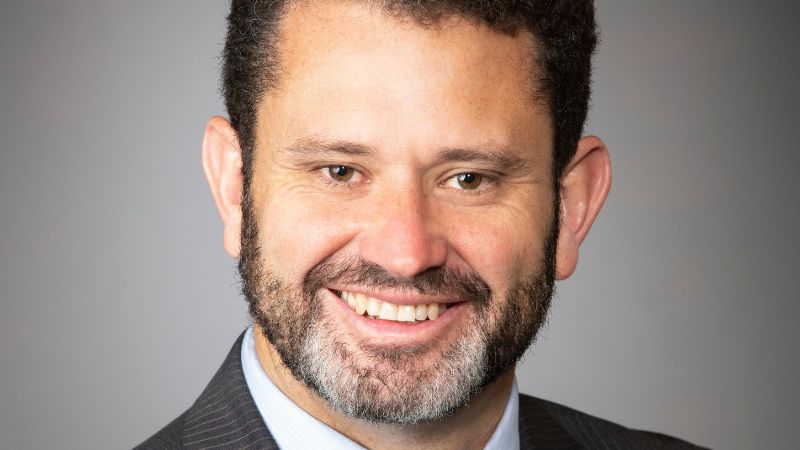Equality Australia has welcomed the passing of legislation in South Australia that aims to curtail conversion therapy practices. They say the bill is welcomed by survivors and community organisations and the new laws will save lives.
The SA government bill passed 13 votes to 8 on Tuesday night.
Under the laws, perpetrators convicted of causing serious harm through the performance of conversion practices will face up to five years in jail, with people convicted of taking or arranging to have someone taken interstate, or engaging a person from outside of the state to provide a conversion practice facing up to three years in jail, a fine of up to $15,000 or both.

“This new law confirms we are not broken, disordered or in need of fixing,” said Equality Australia CEO Anna Brown.
“The legislation is not perfect but it’s an important step forward, and it will protect thousands of vulnerable South Australians into the future.”
Brown thanked SA survivors and advocates for their tireless work over many years.
“I hope this is a moment of great pride and healing for those brave people who have made South Australia a better place for generations to come,” she said.
“This law will save countless people from a lifetime of pain and in some cases save lives.”
The new law criminalises conversion practices that seek to change or suppress a person’s sexual orientation or gender identity and cause serious mental or physical harm.
The new law provides redress to survivors through a civil pathway and makes it illegal to take someone out of SA to undergo a conversion practice. The SA Commissioner for Equal Opportunity can also disseminate information and conduct research and education about conversion practices.
In response to community concerns, the government confirmed that conversion practices could be reported outside the 12-month time limit set under the Equal Opportunity Act and third-party reporting would be considered as part of a broader overhaul in the near future.
Amendments to outlaw single instances of conversion practices were voted down but Equality Australia say they will continue advocating to strengthen the laws.
“Practices that were experienced by every one of the local survivors we worked with are illegal under this law and we will continue advocating to ensure the scheme is strengthened,” Brown said.
Legislation has already been passed in Victoria, the ACT, and most recently in NSW. Queensland has a ban on conversion practices in health settings, while Tasmania and Western Australia have committed to reforms.
The Western Australian government has recently confirmed that the long-promised legislation will not be introduced until after the 2025 election.

South Australia’s Attorney-General Kyam Maher said the government was giving a clear message to the local LGBTIQA+ community.
“You are loved just the way you are.” Maher said.
It’s a true demonstration of how inclusive our community is that State Parliament has been able to act on this important issue.
I’m proud we have been able to outlaw this practice and better protect the many and diverse members of our LGBTIQA+ community across South Australia.
I thank all those survivors, advocates and faith leaders who have engaged with the government on this issue over the past several years.” Maher said in a statement.
Jace Reh, Adelaide survivor-advocate welcomed the passage of the bill.
“There is something cathartic about hearing this government acknowledge my experience from 2008 to 2015 was unacceptable and should have never happened.
“This bill is far from perfect, but it opens the door here in South Australia to addressing the historic and current abuse against people in our community.
“Through my role at Thorne Harbour Health I have seen over 200 LGBTQIA+ people from 16-70 years old in just over a year, and I can confidently say over a third of these people have had experiences of conversion practices, whether in a religious institution, education facilities or in the wider community.
“I have made attempts on my life over 60 times. If I could pray the gay away, I can assure you it would have worked. My experiences are a testament to the strength and power of our community, and we will continue to grow. I stand with my community today to say, we did it, and the fight is not over.”
Adelaide based Megan Barnes, who is also a victim-survivor of the practice said she never thought the changes to the law would be realised.
“I want to thank the South Australian government for believing me and other victim-survivors. I never thought this day would happen.
“This is just one step towards protecting my community against targeted abuse disguised as faith or therapy.
“This law is for all the people who feel alone and unsafe right now and have been taught to question who they are.” Barnes said.
Leeann Friday, Chair of SA Rainbow Advocacy Alliance (SARAA) was also positive about the legislative change.
“This historic legislation tells people in our community they don’t need to change to be loved, and we are whole and valid just as we are.
“Survivors have fought over many years to ensure younger generations are protected from the damage that was done to them.
“We will continue putting pressure on the government to ensure it effectively overhauls the Equal Opportunity Act, meaning family or friends who witness conversion practices on a loved one can report it on their behalf.
“Survivors should not be made to bear the burden of enforcing this ban alone.”
CEO of Ambassadors & Bridge Builders International (ABBI) Anthony Venn-Brown said the introduction of the new laws should serve as a wake-up call for religious groups.
“When a government moves to legislate against so-called conversion “therapy” it delivers a wake-up call to religious communities that continue to hold onto outdated and harmful beliefs about LGBTQA+ people.
“The idea that we are flawed, unnatural and in need of “fixing” is not only profoundly misguided but also half a century behind the times.” Venn-Brown said.
“In 1973 mental health professionals removed homosexuality from their list of pathologies. Decades of research has since demonstrated that these beliefs and the harmful practices that stem from them inflict deep and long-lasting trauma, which often leads to heightened suicide risk.”





